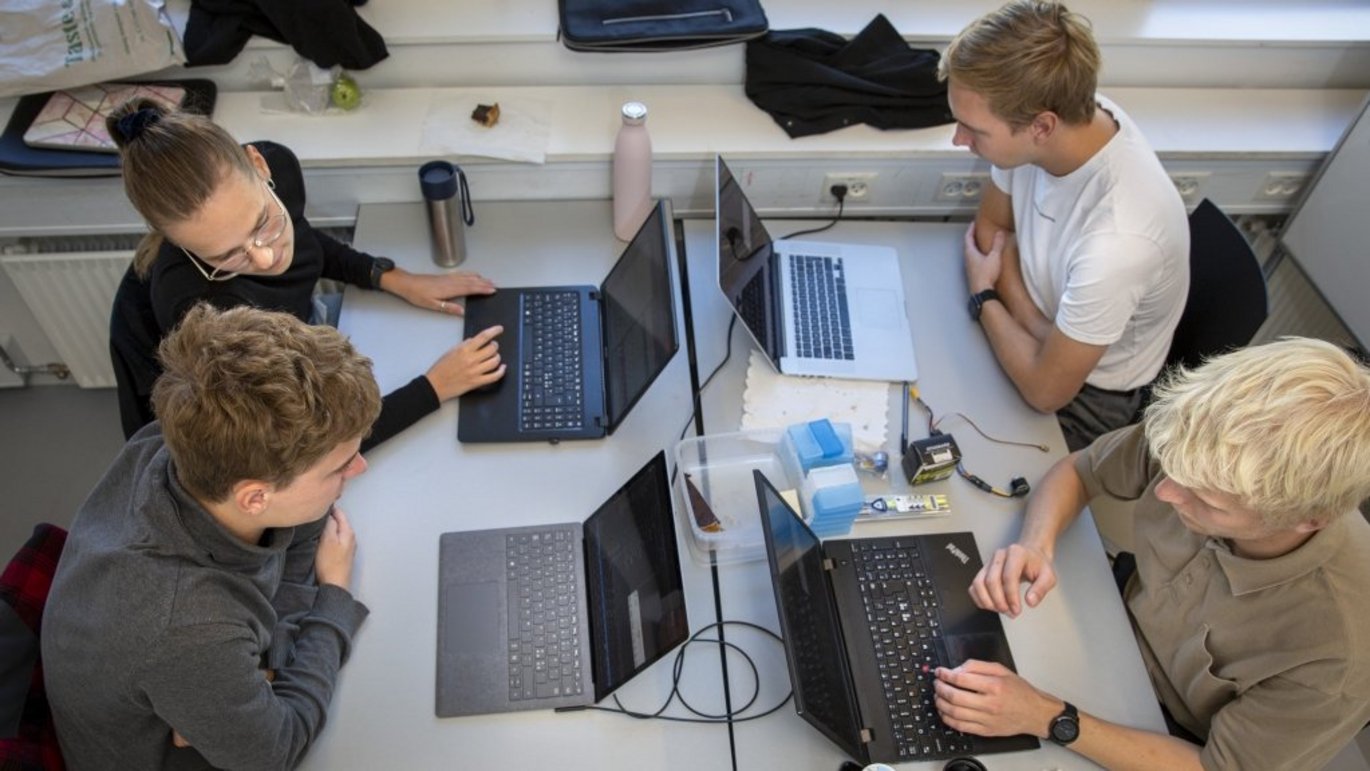Digital competencies to prepare students for the labour market of the future
AU has set ambitious goals for the development of students' digital competencies with the cross-faculty initiative 'Digitally Competent Graduates'. Research-informed working methods, local ownership, and a pragmatic approach are the key principles which will ensure that the efforts are adapted to the very diverse needs of the different degree programmes.




Extensive digitalisation has an impact on research, education, and the labour market. According to the university’s initiative 'Digitally Competent Graduates' (abbreviated DKK – 'Digitalt Kompetente Kandidater'), by 2025, 50% of the degree programmes at AU must have a plan for how their curriculum is to be developed with regard to relevant digital competencies and graduates' future employability.
To help the university reach this target, the CED is now offering digital competency analyses that can help degree programmes assess the extent to which digital competencies are included in their curriculums,and whether they provide students with the opportunity to acquire the digital competencies they will need on the labour market of the future.
"If we look at the students who matriculated this year, we see that a large number of them will get jobs that do not yet exist, because society and development are moving so fast. We have to match that pace so that the students will be prepared to apply for the jobs that exist when they a graduate," explains Special Consultant Mads Ronald Dahl.
Together with Special Consultant Dorte Sidelmann Rossen and Division Manager Tina Bering Keiding, he is part of a working group at the CED which is facilitating work on the digital competency analyses.
Research-informed efforts across national borders
In 2006, the European Parliament and the Council issued a Recommendation on key competencies for lifelong learning. Digital competence is one of the eight key competencies highlighted in the recommendation. In 2018, the European Commission went on to publish a reference framework for digital competency called the Digital competency Framework for Citizens (DigComp). In 2022, an update, DigComp 2.2, was released, which is available here.
The CED working group on digital competency analyses has based its approach on DigComp 2.2. The group examined and evaluated what kind of framework and terminology to use to translate European digital competences into a Danish context. This evaluation was validated by representatives from all faculties at AU.
In addition, the group collaborated with the authors and researchers from the European Commission's Joint Research Centre, which is behind DigComp 2.2. Throughout the process, the group also engaged with universities in France, Malta, Switzerland, and Austria. European cooperation was an important element in the work:
"It is really important that our graduates are internationally comparable. After all, they will be emerging into an international world. So we are trying to draw on the strongest international research and trends," explains Tina Bering Keiding.
European perspective, but locally rooted ownership
The working group from the CED is facilitating the preparation of the digital competency analyses, but ownership within the context of the DKK initiative is wholly anchored at subject level. Digital competencies vary from subject to subject and from programme to programme. That is why it is necessary that the degree programmes themselves define the competencies that are important for their students to acquire during their studies.
"While certain digital competencies are important for a theology student, for a business administration student, something else will take top priority. That is what the degree programmes have to define themselves," explains Dorte Sidelmann Rossen.
Locally rooted ownership is also reflected in the faculties' different approaches to the initiative. Health has chosen an approach that requires everyone to use DigComp as explicit frame of reference, while discussing and implementing it subsequently in the individual degree programmes. At Arts, the entire DKK project is taking place at subject level; the heads of department are responsible for initiating the processes and adapting the frame of reference as necessary to local conditions.
"We cannot just say that now we are all doing this from A to Z. In some places we have to start at Q. We need to tailor the process to the time and resources the faculties and the subjects have, and to the knowledge and experience they have with their students," concludes Dorte Sidelmann Rossen.
The pragmatic approach is thus crucial in order to ensure that digital competencies are integrated effectively across the degree programmes and support the students' academic development.
Strategic consultancy in many different areas
The CED is responsible for supporting AU's strategy for research-based degree programmes of the highest international quality, as well as specifically supporting the 2025 strategy's initiatives in the following areas: better introductory programmes for new students, an attractive environment for study, engaging Educational IT, digital competencies, entrepreneurship and research in the degree programmes as well as graduates for the labour market of the future.
The Digitally Competent Graduates initiative is just one of many topics and issues teaching teams and programme directors can receive competent advice and consultancy from the CED, based on three principles:
- The CED’s work is informed by research and also generates new knowledge about the universities.
- Responsibility for the strategic initiatives at AU lies with the involved subjects and programmes, while the CED offers tools, consultancy, and process facilitation.
- The CED’s approach is always pragmatic and solution-oriented.
Do you and your team need consultancy for a larger development process? Do not hesitate to contact us.
You can either contact Tina Bering Keiding (tbkeiding@au.dk | (+45) 24 42 46 56) or contact your faculty contact person.
